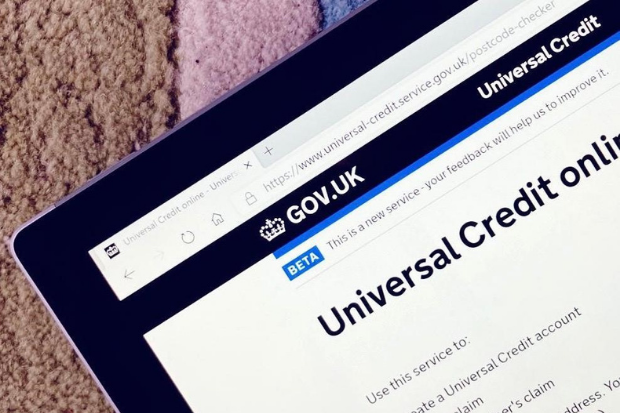A range of experts from across the public sector digital and data scene tell us about their inspirations and the changes they would like to see before IWD 2022
Mathematician and computer scientist Katherine Johnson at NASA in 1966
To mark International Women’s Day 2021, PublicTechnology asked a selection of women across the public sector digital and data sector to tell us about their female tech heroes, as well as the importance of diversity and hopes for the coming 12 months.
Here’s what they told us.
One of the themes of this year’s IWD is to “celebrate digital advancement and champion the women who are forging innovation through technology”; who are your female tech heroes, and why?
A computer scientist called Fei Fei Li, who was one of the people who set up a centre at Stanford University called Human-Centered AI. She’s a very important person because she’s at the forefront of AI and machine learning technologies, but absolutely recognises that values are at the centre and the heart of these decisions, and very much advocates for more inclusive and humane approaches to technology.
The other person is Dame Stephanie ‘Steve’ Shirley’s feet. Shirley. She’s an IT pioneer who is known for loads of things, and is the most amazing woman. But I first heard of her because she set up this company in 1962 called F International, to create job opportunities for women in computing. It was at a time when there were very few women, it was very difficult. She sets up this company – a complete pioneer – and let women computer programmers work from home and give them job opportunities. It really was this kind of amazing initiative very, very early on to recognise women’s skills, to promote women, and to fight sexism.
Judy Wajcman, Anthony Giddens professor of sociology at the London School of Economics and a fellow at The Alan Turing Institute – click here to read our interview with Wajcman about the Turing’s research into the gender gap in AI and data science
This is a hard question because I have so many! Of the ones I’m lucky enough to know I would say:
Eleonora Harwich, director of research at Reform
This is a tricky one to call out, at risk of mentioning some very worthy people but forgetting others so, instead, I’ll answer it this way.
There are many awards and recognition programmes for women in tech, including the Women in Tech Excellence awards – but there are others. In my view, we never make enough of these awards to follow up and promote female tech heroes after the event.
So, I’d encourage us all to be aware of those awards, to nominate and actively promote the outcomes whether the winners are in our organisations or not. It would be great for more men in the digital sector to be aware of who the female digital heroes are.
Alison Pritchard, deputy national statistician, Office for National Statistics – click here to read our interview with Pritchard about this year’s Census, improving the quality of government data, and the importance of inclusion
Susan Morrow, Avooc Secure Ltd. In the last year alone, Susan has surfaced a number of important issues grounded in expert knowledge but overlaid with empathy that will, and have, advanced thinking and action in digital identity. Susan has a regular column on identity and security; my personal favourites are her articles and on data sharing in a digital world and its unintended impacts, the future of digital identity and the importance of making it accessible to all, and poverty and its effect on identity. She’s a truly inspirational woman in identity.
Cheryl Stevens, director of shared channel experience at the Department for Work and Pensions
Cheryl Stevens is my hero; as a constant supporter of gender, our sponsor for race, a person of enormous impact in the complex areas of digital identity and trust, and now building a brand new customer experience directorate. Best of all, Cheryl is a true friend to anyone who needs support, and the best hugger.
Joanne Rewcastle, head of internal digital and cross-government engagement at the Department for Work and Pensions
What is the importance of achieving a more gender-balanced digital sector, and what role can government play?
We in the digital sector are building services for the public, setting future strategy on data and helping the digital profession underpin UK economic success. We need the broadest view, most diverse innovative thinking and most talented workforce to deliver success. We need an equal balance of women in this sector to reflect those objectives.
At ONS, we are working to collect more data to help shine a light on inequalities within society. By collecting more data at a granular level, we can help shine more of a light on how issues affect us all differently, whether that’s gender, ethnicity or sexuality.
For example, we know that in 1992 just 62% of women aged 16-64 were in employment, that’s up to 71.8% now in the last quarter of 2020. In 2016, the number of women aged 16-64 not in the labour market, because they were looking after family or home, dropped below two million for the first time since records began.
Data is a tool for creating change. Through collecting and promoting these statistics we are helping to show that these issues are real and highlight them to those in power. This information has a direct impact on government and decision makers across the country and can help to create real change.
Alison Pritchard, ONS
Digital technology is such an enabler, it needs to be designed for all and accessible to all. The best way of achieving that is ensuring that people’s voices are truly heard through the design process and that the teams involved in delivery truly represent the people they’re delivering too. Greater balance and broader representation of all kinds is key to that.
Helen Roberts, director of children, retirement and counter fraud, Department for Work and Pensions
There’s the issue equal opportunity in the labour market, there’s the issue of bias in technology – and diversity is also good for innovation. Having decent, transparent data on these issues would be a start for doing some research in order to solve these problems.
Judy Wajcman, LSE
Government provides services for all in our society, that means that to truly comprehend that vast demographic, similarity and difference, our workforce has to be representative. The encouragement to get women into digital has increased significantly over the last five years or so; we aren’t quite there yet, but it is rare now that I am the only woman in the room – and that was not the case previously.
Cheryl Stevens, DWP
Between now and International Women’s Day 2022, what are the most important things organisations – and individuals – can do to make the digital profession more inclusive?
Making sure that women’s skills are not undervalued. We want to rewrite the narrative around the history of computing; when we think about women who have had impacts on computing in the past – such as Margaret Hamilton or Katherine Johnson – we need to make sure that women’s skills are valued and discussed.
Erin Young, fellow at the Alan Turing Institute
Whilst there’s loads of brilliant digital work happening right across the civil service at the moment, we could do more to showcase it and to attract even more people to come and be part of it. The opportunities to make a real difference are immense. More specifically, I guess the particular challenge of the next year is to make sure we work in a way that enables everyone to have a voice. The move to more virtual working and less office-based activity needs to be done in an inclusive way to make sure that, as we continue to build diverse teams, everyone has the opportunity to contribute as much as they can.
Helen Roberts, DWP
We can walk the walk and occupy the platforms. When I chaired Sprint 2020, I took great pleasure in introducing a senior, all female panel to discuss the future of data, and cheekily apologised to the audience for the failure in having male representation on the panel! By providing role models, we encourage other women to enter the sector and want to progress.
We at ONS want to lead from the front on this issue; however, there is always more we can do. Around 56% of our total workforce is female but only around 40% of our director-level positions are held by women. Between now and next year, we will be working to ensure that we can provide the necessary frameworks to empower more of our talented female workforce to reach for more senior positions.
The route to inclusivity is well known. The biggest changes we can make include getting our career pipelines in order, and targeted acceleration programmes for under-represented groups really do matter. Reaching out to networks and support groups at the beginning of recruitment, rather than at the end, is more impactful than desperately dealing with a crisis at shortlisting when it’s too late.
And then supporting women in the workplace is vital. Earlier research has indicated that a component of the gender pay gap reflected women returning to the workplace after maternity leave never really recovered their career progression against male colleagues. Let’s focus on that.
There are many areas where we need to improve as a society if we are to be truly equal. The statistics our teams produce show us that we’re not there yet, but that on the whole things are improving.
Alison Pritchard, ONS
I think the most important thing to focus on between now and next IWD is to stop simply paying lip service to promoting diversity. It is key for organisations to start taking action and changing their processes and that might be for examples through the way they recruit, where they advertise for jobs, and what outreach programmes they develop. It is key to start doing and not just talking.
Eleonora Harwich, Reform



